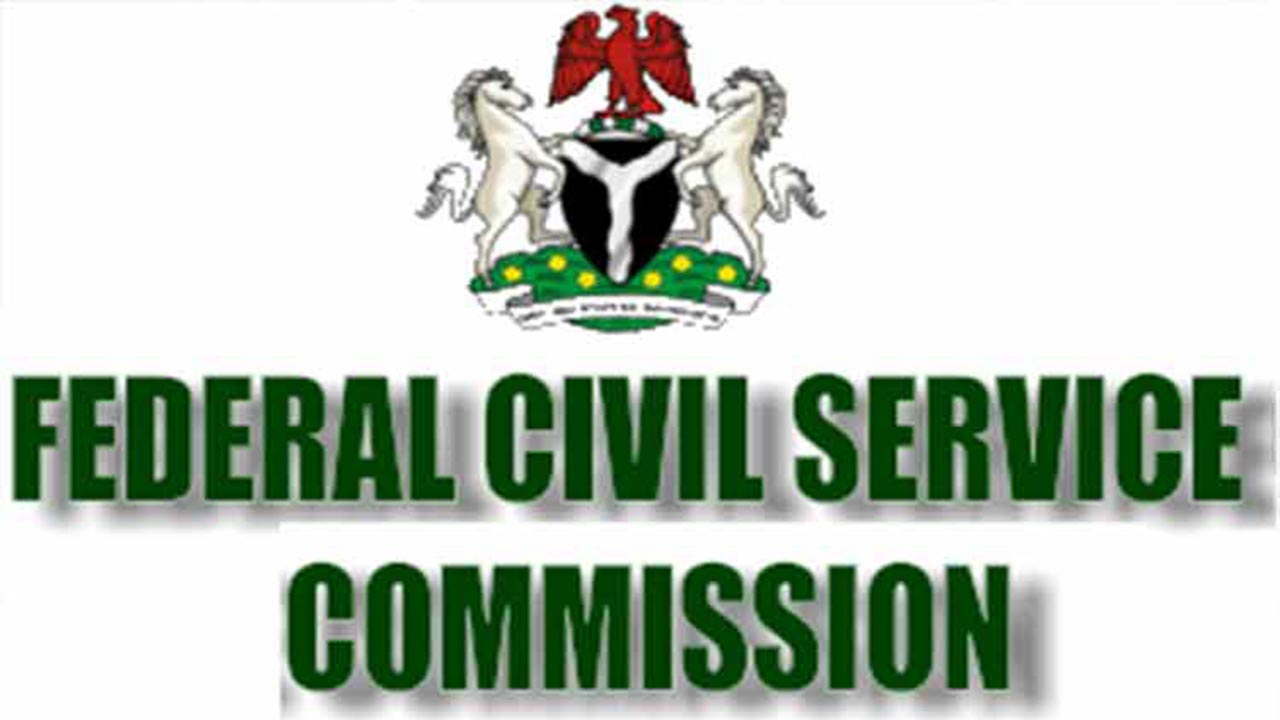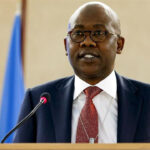By Tunji Olaopa
The trajectory of the emergence and institutionalization of public administration and the civil service in Nigeria benefits immensely from a generational analysis. There are three generations that contribute capital and deficiency to the institutional performance and productivity quotients of the Nigerian civil service. Of course, the first generation of civil servants and public administration belong to what we now fondly refer to as the golden age of the public service in Nigeria. This first generation unraveled between the 50s and the early 60s. This period coincided first with the inauguration of the Nigerian civil service in 1954 as a nascent institution, and the political independence of Nigeria. These two facts significantly attest at once to the quality of the officers that founded the civil service and the institutional quality of the public service itself. This civil service framework was one nurtured on the traditional Weberian structure which required from civil servants the requisite of anonymity, neutrality and impartiality. Thus, a civil servant’s overall profile is therefore expected to be circumscribed by efficiency, effectiveness, integrity, accountability, responsiveness, loyalty, equity, fairness, and so on.
Choosing a civil service career at that time conferred prestige and status in society. The condition of service supported this class recognition. At this point in its evolution, the civil services were not perfect but they stood out as value-based institutions distinguished in competence, professionalism and moral rectitude. They attracted the best and the brightest. Their internal governance was entrusted to an independent, non-partisan and impartial beacon of integrity—the Public Service Commission. Recruitment was strictly meritocratic and promotion was based on merit and performance. There were attractive competitive and comparable conditions of service and generous and well-funded pension package.
The second generation of public administrators and civil servants, from the late 60s to early 70s, the core of which constitutes those we fondly refer to as the super permanent secretaries. The permanent secretaries that carried “super” qualifier amongst this corps were so-called because they were called upon at a most desperate and chaotic time in Nigerian history—the civil war period—to deploy their administrative acumen, competences and wisdom to take Nigeria through the pre-war, war and post-war periods. Their challenges also dovetailed into managing the command-and-control structure of the military during and after the war.
Before expounding the trajectory of the third generation of civil servants and public administrators, to which I belong, I need to note a few administrative dynamics and dysfunctions that heralded the emergence of the third generation. From the pioneering generation of civil servant, as noted earlier, Nigeria inherited a civil service that was essentially value-driven, public oriented and highly professionalized. The values of the service as well as those existing within the Nigerian society of the period were mutually reinforcing to facilitate the core public spiritedness that the profession demanded.
Both the Adebo Commission (1971) and the Udoji Commission (1974) signaled the moment at which the system ought to have transited from the Weberian, “I-am-directed” administrative tradition, so that the system would be remodeled to facilitate its capacity readiness to carry the functionality of a developmental state. Unfortunately, the system was at the height of its success, preeminence and somewhat too self-satisfied to respond to reform prompting. The administrative dissonance between the civil service and the second and third development planning undermined the vision of placing the Nigerian state at the commanding height of the economy as a developmental state that was able to realize the objectives of transforming the lives of Nigerians. Several series of events—discovery of oil, the immense petrodollar that submerged the national revenue, the rejection of the Udoji recommendation for a managerial rehabilitation of the administrative system, the implementation of the Udoji bonanza which structurally disconnected the service wage structure from national productivity trajectory thus making recalibration within technical-rational parameter complex, and the 1975 purge of the civil service—eclipsed the golden age of the civil service, and aggravated the second generation that was already immersed in bureau-pathology. It was already an open season of societal and administrative anomie. The economy awash with oil revenue had already instigated national profligacy.
From the 1975 civil service purge to the SAPs de-institutionalization process, the value-orientation of the inherited civil service ethos had been damagingly eroded. Professionalism and public-spiritedness had gone to the dogs! The culture of delayed gratification had been replaced by that of instant gratification (or something-for-nothing). The statist dynamics of prebendalism and clientelist framework could then easily invade the civil service in ways that instigated a culture of waste and redundancies as well as a damaged maintenance and asset managing system. The third generation of public servants was thus heralded by a ballooning cost of governance and an administrative debilitation that were a far cry from the system inherited by the pioneers, from Adebo to Ayida.
By the time my generation came of age, it was already deeply embroiled in the dynamics of the bureau-pathology that has debilitated the civil service. And this was all the worse because we had mentors and seniors who connected us to the golden age in terms of their passion, professionalism and knowledge-propelled zeal for service. They carried the grand narratives of promise and progress tied to nation-building. And they were all too willing to pass on their knowledge and zeal through a generational handholding. Unfortunately, however, it is my generation of administrators and public servants that has to pick up the brunt of institutional decay at its acutest point, and especially when the challenges of national integration and good governance have become more heightened. Nigeria now needs “a world-class public service delivering government policies and programmes with professionalism, excellence and passion”, to quote the vision of the NSPSR. But then, the “professional, efficient, effective and accountable” public servants who understand the system (past, present and in the light of daily growing innovations in public administration) to bring knowledge and skills into capacity readiness may really not be on ground. Besides, there is a dearth of think tanks and consulting firms that have developed services portfolio that have deep enough relevant contents, solutions-frameworks and core competences to address first-hand, the issues and problems for which governments in Nigeria are seeking for solutions.
They were generationally, confronted from the the 80s through the 90s to date, with a huge tide of challenges and possibilities. The managerial revolution that the Udoji Commission recommended confronted the public service with new concepts and practices around target setting, performance assessments metrics, professionalized human resource departments, policy-engaged research, evidence-based policy intelligence, monitoring, evaluation and new project management accountability structures, management and operation research, etc. Of course, the succeeding governments, from independence, were equally concerned with the sustained decline in the effectiveness and efficiency of the civil service, and especially it disconnection from development planning and state objectives. Thus, administrative and governance reforms became key parts of service rehabilitation.
Within the remit of achieving a professionalized service, the Phillip Report focused on training to achieve specialization. Civil service officers were targeted based on the high-end qualifications they present at entry, and are required to undergo regular training and retraining. This led to the creation of a new bureaucratic structure made up of assistants, officers and directors. The unintended consequences of the reform transcended its initial objective of a professionalized and specialized service. For instance, the renaming of the permanent secretaries as director-generals was a politicising act that gave them the tenures of political appointees.
By the late 90s, the fight to regain the value-based practices of the civil service was already getting lost. First, the service was already a mixed multitude—a genuine set of administrators and conscientious civil servants coexisting with a motley of politically-minded bureaucrats more inclined to political orientation, parochialism and primordial sentiments. Second, the category of mentors and seniors who were more than willing to assist in waging the war to relocate the system back to its value-based administrative tradition were already rapidly thinning out due to retrenchment and death.
It was thus that sincere reform efforts were contending with congealing anti-reform bureaucratic practices. Even after 1999 when the democratic experimentation commenced, and the civil service was under the reform imperative of re-professionalization to capacitate service delivery to Nigerians, the phenomenon of organised lateral transfers and the resultant stagnation and promotional block which had built up since the movement of the capital of Nigeria from Lagos to Abuja in the federal in 1990/1, had already become complicated and disenabling to the system. This measure of bureau-pathology was aggravated by a certain level of in-breeding that ensured that the service is not opened up in a structural sense that facilitate systematic process of infiltration by external expertise and competences through sabbatical leave, staff exchange, projects-based exposures opportunity to officers, and so on. There was also a limited exposure to business and commercial orientation that constrained capacity by officers to take advantage of such emergent business models as PPPs, outsourcing, etc. in the last decades. The service also became constrained by a reluctance to modernize through a critical embrace of new technologies and digitization necessary for the implementation of open (cum electronic) government, and consequently a performance management culture that has the capacity to enhance national productivity Nigeria requires for a competitive twenty-first century economy.
Managerialism has transformed the way we understand government, governance and management. Essentially, the idea of the twenty-first century government is one that is democratic, citizen-centric and seamless in the way it connects its efficient and technology-enabled public service to an enlarged governance space that allows both the government and other nongovernmental and non-state actors to brainstorm and strategize on how to generate policies that facilitate better service delivery to the populace. And the idea of a 21st century government is practically impossible without a corresponding 21st century public servant. In essence, the twenty-first century public servant must be willing and able to operate in a VUCA—volatile, uncertain, complex and ambiguous—environment, armed with a large dose of public-spiritedness and a sense of the public service as a calling in the Levitical Order.
Olaopa is a retired Federal Permanent Secretary




